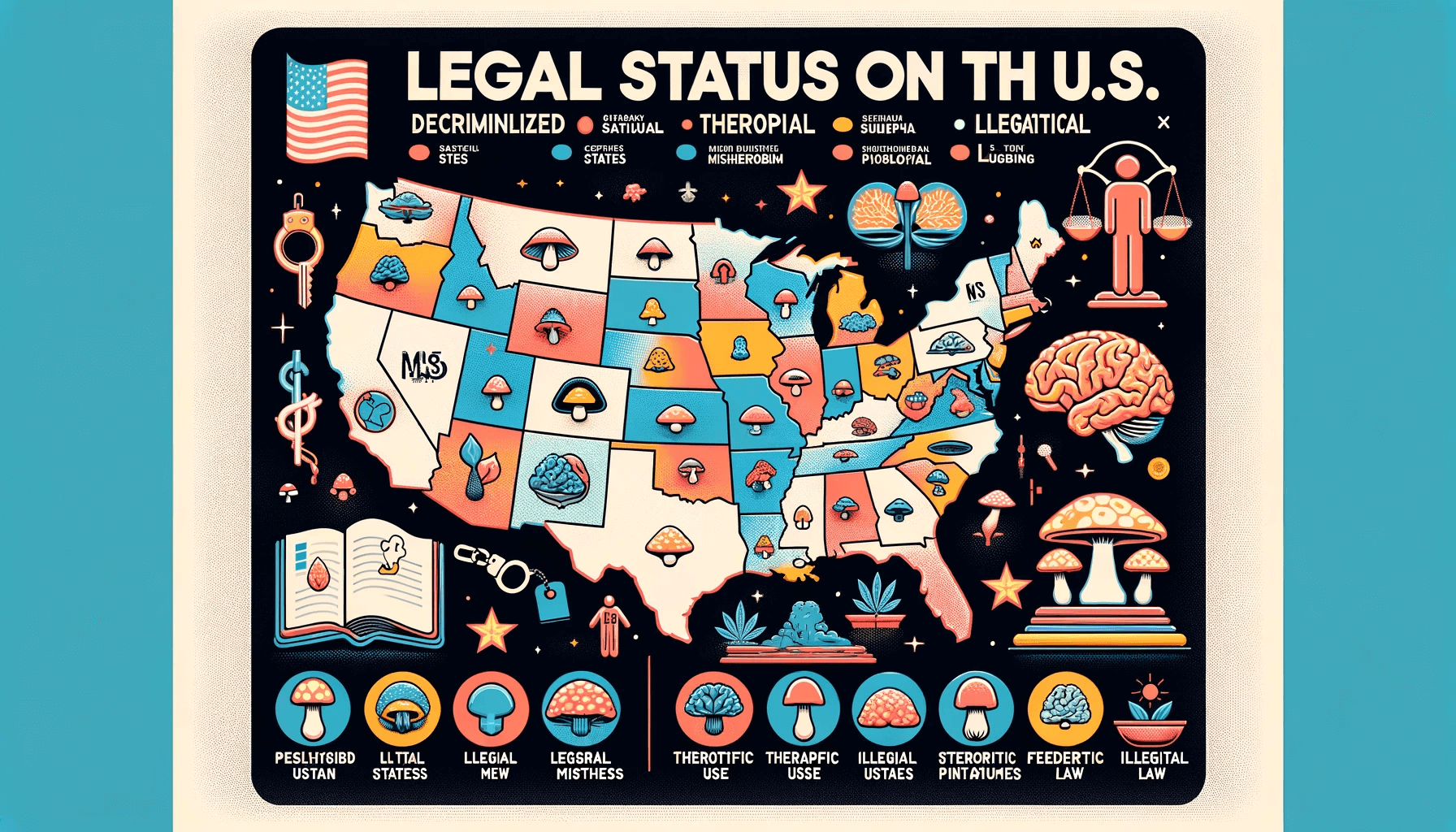Navigating the legal landscape of mushroom possession and use in the United States can be akin to threading a needle. Laws vary widely depending on the type of mushroom and its intended use. This article aims to clarify what’s legal and what could land you in hot water when it comes to fungi.
Federal Classification of Mushrooms
The legality of mushrooms in the U.S. primarily hinges on whether they contain psilocybin, a psychoactive compound. Psilocybin-containing mushrooms, often referred to as “magic mushrooms,” fall under the Controlled Substances Act (CSA):
“Schedule I substances are those that have a high potential for abuse, no currently accepted medical use, and a lack of accepted safety for use under medical supervision.” — Controlled Substances Act, 21 U.S.C. § 812
Under this act, psilocybin is listed as a Schedule I substance, making most psilocybin-containing mushrooms illegal to cultivate, possess, or distribute.
Exceptions and Reform Movements
Despite the federal ban, there have been movements and regulatory changes at state and city levels that challenge the status quo:
- Certain jurisdictions have decriminalized the possession of small amounts of psilocybin mushrooms.
- Legislative efforts to legalize or decriminalize such substances for therapeutic uses have gained traction in some states.
Culinary and Non-Psychoactive Mushrooms
The vast majority of mushrooms do not contain psychoactive substances and are perfectly legal. These include varieties commonly used in cooking and sold in grocery stores, such as:
- Portobello mushrooms
- Shiitake mushrooms
- White button mushrooms
Legal Consequences of Possession
Possession of illegal mushrooms can lead to serious legal consequences, including fines and imprisonment. The severity of penalties often depends on the amount possessed and the intent (personal use versus distribution).
State-Specific Laws
It’s important to note that while federal law prohibits psilocybin mushrooms, state laws may differ:
- Some states have adopted more lenient policies, while others may enforce stricter penalties.
- It’s critical to be aware of the laws specific to your state or any state you may be traveling through.
The Takeaway
While most mushrooms are legal and widely consumed for their nutritional value, mushrooms containing psilocybin are illegal under federal law. However, there’s a growing conversation around their medicinal potential and an evolving legislative landscape that could reshape their legal status in the future.
For accurate and up-to-date information on the legality of mushrooms, individuals are encouraged to consult legal professionals or local law enforcement agencies.
References
- Controlled Substances Act. (n.d.). Retrieved March 30, 2024, from https://www.dea.gov/drug-information/csa
- Psilocybin Policy Overview. (n.d.). Retrieved March 30, 2024, from https://www.drugpolicy.org/issues/psilocybin-mushrooms









Leave a Reply